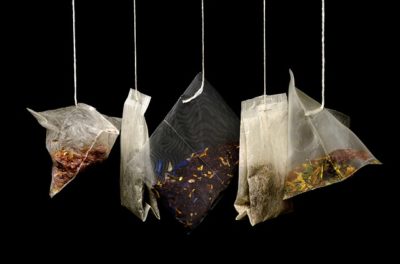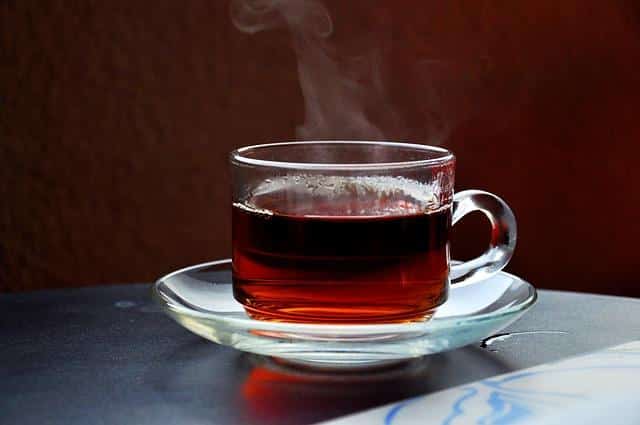Thankfully for those living in the most extreme climates, winter’s frost and snow provide beauty during this cold, dark season of short days and long nights. When it comes to staying warm, hot tea has long been an excellent choice during the winter months and it also comes in many healthy varieties which can enhance mental, physical and even spiritual well-being.
Try Black Teas This Year
For many of us, winter is a time for looking inward. We reflect on the prior year and look forward to the new one ahead. While you are reflecting upon your life, enjoy a cup of a dark rich tea. Black tea aids clarity and help us to focus. It energizes with caffeine and contains healthy antioxidants that support brain health and aid concentration.
Lapsang souchong tea is a potent black tea that has an unusual smoky flavor. It is prepared by smoking tea leaves over spruce wood. Flavored black teas which contain jasmine or vanilla are also delicious at this time of year.
Black teas also contain compounds which provide protection against streptococcus, the organism which is responsible for strep throat, a common winter malady.
Beet Powder: The Ancient Secret To Renewed Energy And Stamina
Pu-erh tea has been used in China for hundreds of years as a digestive aid that also detoxifies. It warms the body and aids digestion of heavy winter meals. Pu-erh tea was traditionally consumed only by royalty.
Prevent Colds and Flu With Tea
All teas contain concentrated plant compounds that help us ward off common winter maladies. Be adventurous! Try teas that contain “super” fruits and antioxidants, immune boosting vitamin C and a multitude of other protective compounds. Hawthorne, wolfberry, elder, acai and goji berries are just a few of the tasty fruits that are available.
Elderberries have been used by herbalist for hundreds of years to treat respiratory illnesses. Current research supports their traditional use.
 You also can make a delicious winter tea of spruce tips. Spruce tea was traditionally consumed by Native Americans during winter months. This practice prevented scurvy, a vitamin C deficiency disease which resulted from inadequate intake of fresh fruits and vegetables during the winter months. Spruce also supports respiratory health.
You also can make a delicious winter tea of spruce tips. Spruce tea was traditionally consumed by Native Americans during winter months. This practice prevented scurvy, a vitamin C deficiency disease which resulted from inadequate intake of fresh fruits and vegetables during the winter months. Spruce also supports respiratory health.
Take Advantage of Spicy Teas
Hot and spicy teas warm us up. Teas that contain ginger, black pepper, cinnamon and cloves possess potent antibacterial qualities. Hot steamy teas clear congested respiratory passages and warm our bodies.
If you are suffering from a respiratory illness such as a cold, sore throat, sinus infection or flu, be sure to drink at least one quart of tea each day. Brew up extra and use it in a foot, steam or tub bath. Gargle with teas made of thyme, oregano, clove, myrrh, rosemary or sage for relief of sore throat discomfort.
Chinese star anise is a tasty spice which pharmaceutical manufacturers use to make medications that reduce the intensity and limit the duration of influenza symptoms. While the spice in the tea may not be as concentrated as it is in the drug, it makes a safe, delicious and healthy tea.
Ease the Discomfort of Winter Ills With Tea
Catnip, birch, wintergreen and cramp bark contain salicylates, aspirin-like compounds which relieve pain, inflammation and fever. Unlike aspirin or other anti-inflammatory drugs, teas made from these herbs do not usually cause stomach upset or bleeding concerns.
Licorice root and wild yam decrease inflammation, too. Licorice, which adds a sweet taste, is an excellent addition to teas that are made with less tasty herbs. Only use licorice root in moderation and for short periods of time, however. Blend it with marshmallow root for a sweet, nutritious tea to drink the next time that you have a sore throat.
Fight Infection With Herbal Teas
Echinacea, mint, thyme and sage are particularly effective for preventing and easing respiratory infections that cause congestion. Rosemary, sage, thyme and dried wild cherry bark help to calm coughs. Calendula possesses potent antiviral actions. It is particularly useful for preventing and treating gastrointestinal ills. Make blackberry root tea for treatment of diarrhea.
If using herbal teas in the presence of nausea or vomiting, begin with tiny amounts. For example, administer one-half of a teaspoon of brewed tea. Wait 15 minutes and then attempt to give a teaspoonful. Repeat this procedure until the sick individual is able to consume about a cup of fluids per hour. Reduce the amount if the sick person is a child.
Drink Tea, Be Well
Herbal teas are delicious and a valuable addition to a winter wellness plan. You likely have many of the herbs in your pantry already. Others are readily available and inexpensive to obtain. If you or a family member is ill, always consult with your health care provider for expert advice on the best course of treatment.
Do you drink tea to boost your health? Share your advice in the section below:
 Off The Grid News Better Ideas For Off The Grid Living
Off The Grid News Better Ideas For Off The Grid Living




